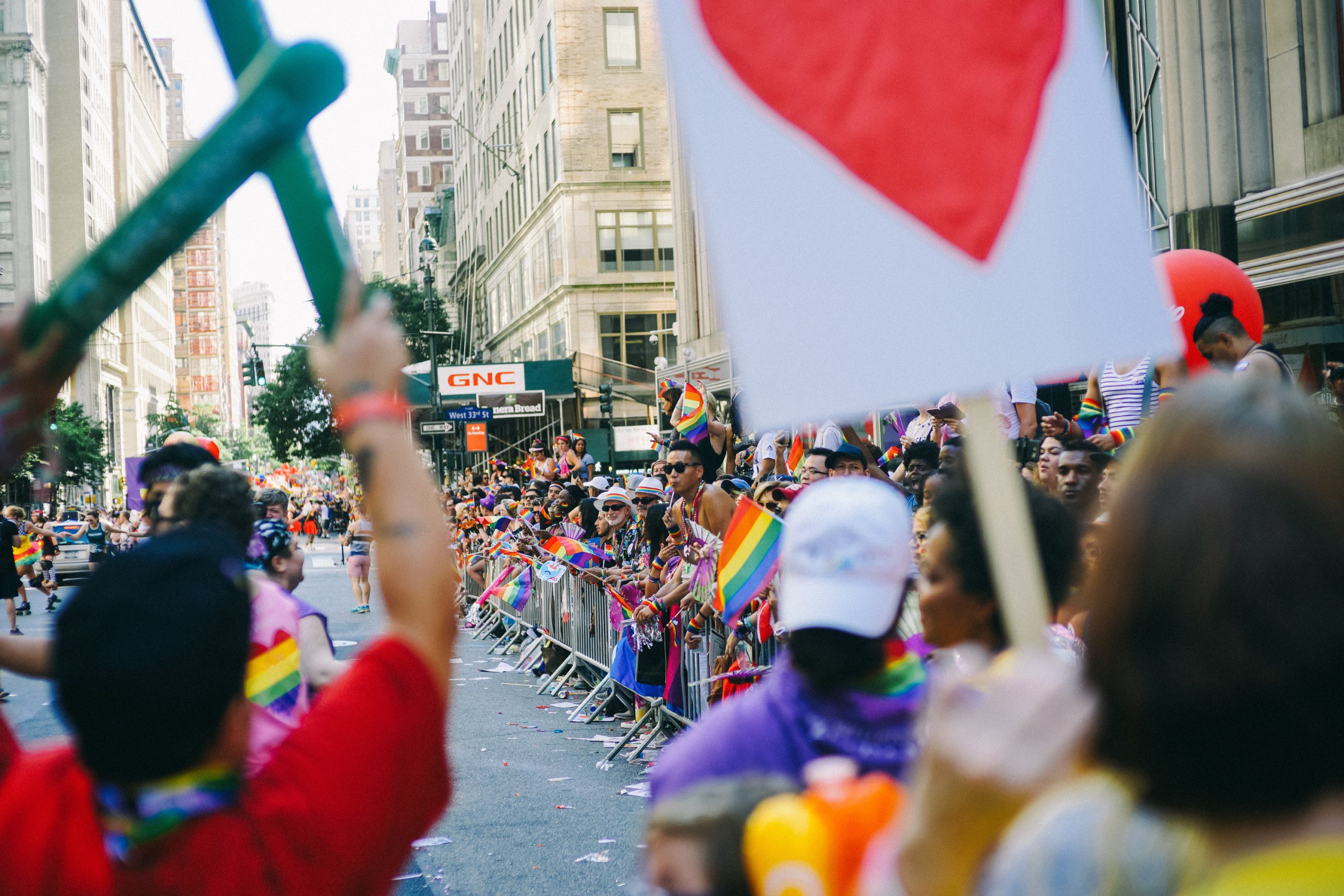Jessie Nowlan | LGBTQ+ Supplement Coordinator
Featured image | Courtesy of Josh Wilburne via Unsplash
I remember my first Toronto Pride Parade: I was 18, in the closet, and high off the energy. I embraced the drugs, alcohol, and sex culture that came with the Pride street parties. Growing up, I was extremely sheltered by my over-protective mother, and had little exposure to gay culture in my small hometown. Pride was, and continues to be, the best party I’ve ever been to.
But is that what Pride’s supposed to be? Is this what those advocating for our freedom at the 1969 Stonewall Riots were really fighting for? I certainly don’t think they were fighting for a community that would condemn Black Lives Matter (BLM) for continuing to pursue rights for queer people of colour.
Pride has become a commercialized sensation that has turned queerness into a commodity, and instead of fighting back, we’ve allowed Pride to stand for corporate values over queer values. So while I would like to thank Telus mobility for their 99-cent fan, and TD for their cheap key chain, I’d also like to say—back off.
Instead of us all coming together to criticize the ever-growing corporate involvement in the Toronto Pride Parade, we continue to allow corporations such as TD, Bud Light, Crest, Fido, and Mercedes to put their labels on our flag, as if they are not already saturating all other aspects of our lives with their branding.
I realize what I am speaking about is controversial. You may hear people say that these companies are helping the community, or believe that yourself, but I disagree.
Yes, the money these corporations donate helps with some immediate issues, and make Toronto’s Pride Parade the worldwide sensation that it is—but at what cost? These companies aren’t charities, government organizations, or activist groups; these are corporations whose financial success relies on convincing consumers to buy their products.
As a marginalized group, we must ask ourselves if this is where we want help from, and why they are even helping us at all.
There is money in queerness now; there is money in our history of oppression, and in the continued oppression for voices that remain unheard. As gayness becomes marketable, more companies than ever are eager to donate to Pride and LGBTQ+ causes, as long as they can have a photo booth where hundreds of people will take photos and upload their logos onto social media.
We as queer people put on display—similar to the way animals are in a zoo—because we are different from what society considers the norm.
As gay culture becomes more sensationalized and profitable, we see more representation of the LGBTQ+ in our media.
However, I continue to watch shows where bisexuals are overly-sexualized, gay men are put into stereotypical roles, and transgender roles are given to cisgender actors.
I continue to hear about the worldwide oppression many queer individuals face in other countries, where their sexuality is still considered a crime. The glitter and floats at Pride don’t represent my story; it doesn’t represent the story of those who struggle with the stereotypes these shows continue to impose on society, or those who must fight harder than all of us as members of multiple minority groups.
I’m not telling you to refrain from celebrating our achievements and identity, I just ask that we refuse to allow ourselves to forget what we are fighting for.
Pride 2018 will be a different Parade for me this year. I won’t be posting advertisements for Telus, and I won’t be accepting cheaply-made products covered in corporate logos.
At Pride 2018, stand with BLM and other activist groups, as they continue to remind us where Pride’s roots come from, and that there is still work to be done.


